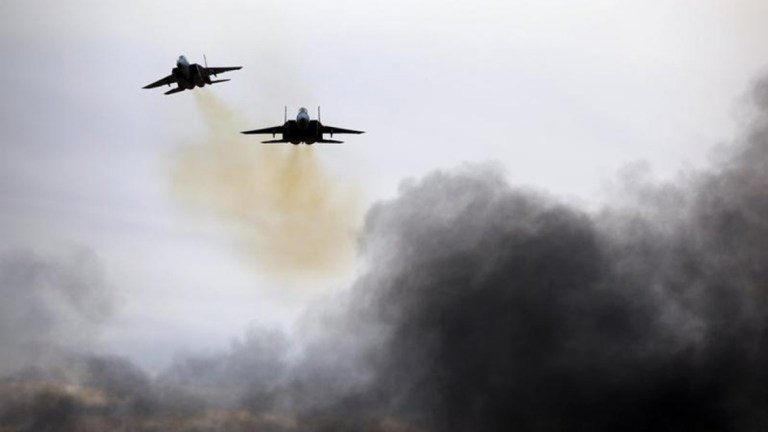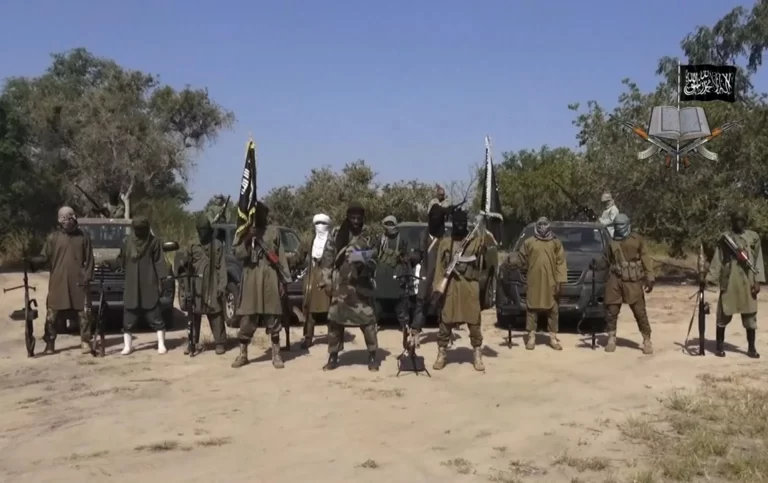National News
Tension as Israel attacks Iran’s nuclear sites

A major military escalation erupted Thursday night as Israel carried out extensive strikes across Iran, hitting nuclear facilities, missile sites, senior military commanders, and top scientists linked to Tehran’s nuclear programme.
The surprise offensive, conducted without direct backing from the United States, signals a bold shift in Israel’s posture toward its most formidable regional rival. Washington quickly moved to distance itself from the operation, as tensions in the region reached a boiling point.
U.S. President Donald Trump, speaking earlier in the day, expressed opposition to a military strike and emphasized hope for diplomacy. “He still believed a nuclear deal was possible,” Trump stated Thursday, only hours before Israel initiated the assault.
Nevertheless, the Israeli military proceeded with the operation, reportedly targeting both Iran’s strategic infrastructure and high-level personnel. Trump later confirmed on Fox News that the U.S. had prior knowledge of the strikes but did not participate. “CENTCOM is on high alert for retaliation against U.S. targets,” he said.
Among the casualties confirmed by Iranian state media were Gen. Hossein Salami, commander of the Islamic Revolutionary Guard Corps, military chief of staff Gen. Mohammad Bagheri, and at least one other senior general. Two top nuclear scientists were also reported killed. Footage broadcast by state media showed thick plumes of smoke rising from civilian areas.
In response, Supreme Leader Ali Khamenei vowed retribution, promising “a harsh punishment” for the attacks.
Israel, anticipating retaliatory strikes, has declared a national state of emergency. Defense Minister Israel Katz warned that drone and missile attacks from Iran could be imminent. Schools and most workplaces have been ordered closed across the country on Friday.
“This campaign will continue as long as it takes,” Israeli Prime Minister Benjamin Netanyahu announced, with an Israel Defense Forces (IDF) spokesperson confirming that the operation is expected to last several days. Officials added that Israel is prepared for Iranian counterattacks.
According to an IDF official, recent intelligence suggested that Iran was accelerating its efforts toward developing a nuclear weapon. “We are now in a strategic window of opportunity and close to a point of no return, and we had no choice but to take action,” the official said.
Tehran continues to deny any pursuit of nuclear weapons. The U.S. and its allies have not issued recent warnings about an Iranian nuclear breakout.
Sources familiar with diplomatic communications indicated that the U.S. privately informed several allies that Israeli strikes were likely, reiterating that the American military would not be involved. As Axios reported, the Trump administration made clear to Israeli officials that it would not support direct action against Iran’s nuclear facilities.
Still, Israel’s military campaign appears to have been months in the making. Netanyahu claimed Iran had “taken unprecedented steps” in advancing its nuclear capabilities while amassing a significant arsenal of ballistic missiles. He said the goal of the operation was to “eliminate” both threats.
Amid fears of broader conflict, Israel has shut its airspace and relocated top political officials to secure locations. Iran also suspended flights from Tehran’s main international airport.
“Tonight, Israel took unilateral action against Iran. We are not involved in strikes against Iran and our top priority is protecting American forces in the region,” Secretary of State Marco Rubio said in a statement. “Israel advised us that they believe this action was necessary for its self-defense,” he added.
Rubio emphasized that “President Trump and the Administration have taken all necessary steps to protect our forces and remain in close contact with our regional partners. Let me be clear: Iran should not target U.S. interests or personnel.”
Although Israel had been conducting military readiness exercises in recent weeks, it previously signaled a willingness to wait for the outcome of nuclear negotiations. Netanyahu thanked Trump for his years of support but received no public backing for the current strikes.
With the offensive underway, prospects for the upcoming round of U.S.-Iran nuclear talks — previously set for Sunday — appear all but extinguished. A high-level meeting of the U.S. National Security Council is scheduled for Friday at 11 a.m. in the White House Situation Room.
Iran has vowed to retaliate, potentially putting U.S. forces and assets across the region at risk. In anticipation of potential strikes, Washington has begun withdrawing diplomats and military families from Iraq, Bahrain, and Kuwait. Additional air defense systems have been deployed to U.S. positions in the Gulf.
(AXIOS)
-

 Politics2 days ago
Politics2 days agoJune 12: Nigerians must resist state capture under Tinubu – ADP
-

 Crime and Law21 hours ago
Crime and Law21 hours agoShock as Nigerian woman exposes new kidnapping tactic
-

 Crime and Law23 hours ago
Crime and Law23 hours agoBank MD remanded over $12m money-laundering
-

 Crime and Law23 hours ago
Crime and Law23 hours agoCourt moves Nnamdi Kanu’s trial to DSS headquarters
-

 National News1 day ago
National News1 day agoMixed reactions trail Tinubu’s presidential pardon of ‘Ogoni Nine’
-

 National News2 days ago
National News2 days agoPresidency apologises after mistakenly listing Fasoranti, Edwin Madunagu as dead
-

 Crime and Law23 hours ago
Crime and Law23 hours agoFG orders probe into Air Peace, Oshiomhole airport saga
-

 Politics1 day ago
Politics1 day agoReal reasons I don’t criticise Atiku Abubakar – Reno Omokri




























